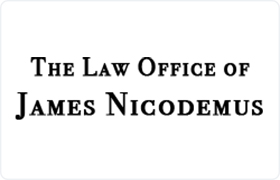Libertyville Real Estate Lawyer, Illinois
Sponsored Law Firm
-
 x
x

Click For More Info:
-
The Law Offices of James Nicodemus
2700 Patriot Blvd Suite 250 Glenview, IL 60026» view mapReal Estate Law Experienced Real Estate Lawyer
When you need accurate representation, whether it’s a divorce lawyer, family lawyer or child custody attorney, James Nicodemus is there for you.
800-986-5891
Robert J. Tomei
✓ VERIFIEDBankruptcy & Debt, Lawsuit & Dispute, Consumer Protection, Defect and Lemon Law, Real Estate
Robert is a lifetime Lake County resident, born in Libertyville, Illinois, and raised in the neighboring Village of Gurnee. Robert attended Warren Tow... (more)
Stephen Newland
✓ VERIFIEDAccident & Injury, Bankruptcy, Real Estate
Stephen S. Newland obtained his undergraduate degree in political science from the University of Illinois in Urbana-Champaign. Steve then went on to r... (more)
LeeAnn Lyn Gurysh
Commercial Real Estate, Municipal, Public Schools, Estate Planning
Status: In Good Standing Licensed: 19 Years
William Michael Graham
Other, Real Estate, Government, Business
Status: In Good Standing Licensed: 61 Years
Michael Robert Graham
Real Estate, Trusts, Family Law, Transactions
Status: In Good Standing Licensed: 52 Years
Robert James Masini
Landlord-Tenant, Litigation, International Tax, Business
Status: In Good Standing Licensed: 48 Years
Jon L. Beermann
Juvenile Law, Real Estate, Employee Rights, Family Law
Status: In Good Standing Licensed: 61 Years
June Merriam Peterson-gleason
Commercial Real Estate, Lawsuit & Dispute, Divorce, Divorce & Family Law
Status: In Good Standing Licensed: 34 Years
 James Nicodemus Glenview, IL
James Nicodemus Glenview, IL AboutThe Law Offices of James Nicodemus
AboutThe Law Offices of James Nicodemus Practice AreasExpertise
Practice AreasExpertise



